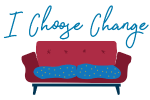We firmly believe counseling should last a lifetime, even if that means monthly or quarterly check-ins. You’ll be given resources during and after your couple’s intensive. However, it is recommended that you add the Gottman Relationship Builder to your arsenal of resources. There, you’ll have 365 days 24/7 access to Dr. John Gottman as he takes you through even more communication exercises. You can login anytime to get the help you need! You’ll also have online access to the Couple’s Packet you’ll receive in our session, plus every Gottman exercise available (some we will get to, most we won’t). Other resources are listed below.
Additional Resources:
Using evidence-based counseling techniques, you and your partner will be guided into a more loving, connected space using the work of Dr. John Gottman’s Sound Marital House and Dr. Sue Johnson Emotionally Focused Therapy (EFT).
- John Gottman’s “Seven Principles for Making Marriage Work” – A great book for couples who are having a difficult time talking to one another because words are disrespectful and angry on an almost constant basis. This is a Cognitive Behavioral Therapy (CBT) perspective for couples.
- David Burn’s “Feeling Good Together: The Secret to Making Troubled Relationships Work” – A great book for couples who are having a difficult time talking to one another because words are disrespectful and angry on an almost constant basis. This is a Cognitive Behavioral Therapy (CBT) perspective for couples.
- Sue Johnson’s “Hold Me Tight: A Couples Guide to a Lifetime of Love” – This book examines the reason we have enraged conversations, and why we ultimately withdraw from the ones we love most – our spouse/life partner.
- Sue Johnson’s “Love Sense: The Revolutionary New Science of Love Relationships” – A great book examining the science of love and love relationships.
- Robert Karen’s “Becoming Attached: First Relationships and How They Shape Our Capacity to Love” – A great book about how we attach to parents as young babies and children, and what happens when we don’t. The childhood attachment process is essential in order to have healthy adulthood.

